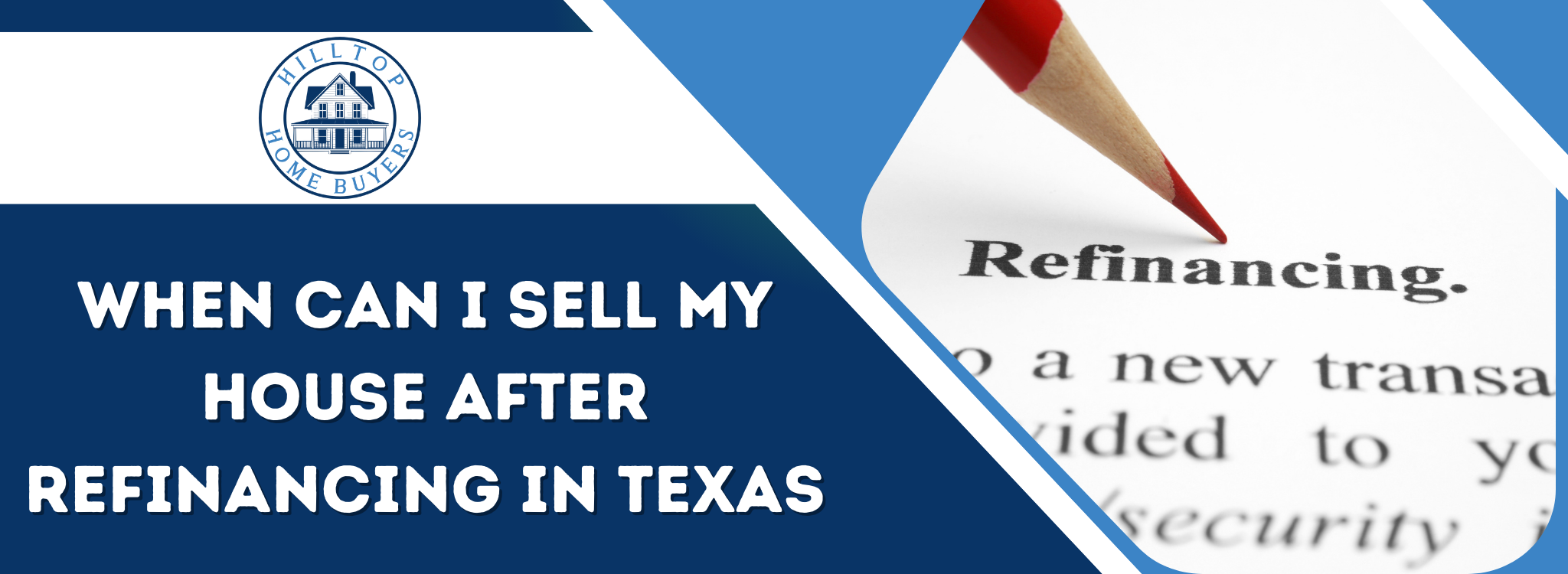
Selling Your Home After Refinancing: What You Need to Know
How Does Refinancing Affect Your Ability to Sell Your House?
If you are planning to sell your house shortly, refinancing may have an impact on those aspects. This strategy comprises replacing your current mortgage with a new one to obtain a lower interest rate or different payment terms. The following are some essential factors to take into consideration:

- Financial Implications: Refinancing comes with fees that could lower your profit from the sale.
- Timing: Some lenders require a “seasoning period” before you can sell the house.
- Equity: Changing your mortgage might affect your home equity, impacting how much money you can make from the sale.
If you’re selling your house after refinancing in Texas, be aware of specific rules that might apply.
Are There Restrictions on Selling a Home After Refinancing in Texas?
If you’ve refinanced your home in Texas, there are some rules you should know about before selling:
- Regulations: Texas laws may include provisions restricting your ability to sell immediately after a refinance, such as prepayment penalties.
- Mortgage Terms: Your new mortgage might have conditions that need lender approval for a sale.
- Legal Considerations: It is advisable to consult with a real estate attorney regarding any Texas-specific legal issues that may arise.
Understanding these stipulations can help avoid legal problems and ensure a smooth sale process.
What Are the Financial Implications of Selling Soon After Refinancing?
If you decide to sell your home shortly after refinancing, consider these financial impacts:
- Refinance Expenses: Your sale profits may be lowered by refinance closing expenses.
- Prepayment Penalties: Some mortgages penalize early payoffs, affecting your finances.
- Equity Enhancement: If the value of your residence has increased since the refinancing, it may still be profitable to sell despite the expenses.
Reviewing these factors will help you choose the best time to sell and maximize your return. Knowing how refinancing affects your house sale in Texas is key to making informed choices.
For more home selling and refinancing advice, check resources from Hilltop Home Buyer.
When Is the Right Time to Sell Your Home in Texas After Refinancing?
One of the most significant decisions you must make after refinancing your property is when to sell it. Timing can significantly impact your financial situation, particularly in the dynamic housing market of Texas. Take a look at the following essential facets:
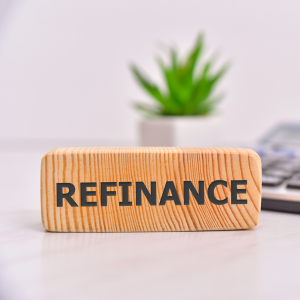
- Market Conditions: Monitor current market trends to maximize your profits. The Texas housing market can change, so staying updated is crucial.
- Refinance Agreement: Check your refinance terms to see if there are any penalties for selling your home soon after refinancing.
Considering these factors, you can decide the best time to sell your Texas home after refinancing.
How Long Should You Wait Before Selling a Refinanced Home?
Deciding how long to wait before selling your home after refinancing depends on different factors:
- Lender Requirements: Some lenders require you to own your home for a certain period after refinancing before selling. This waiting period helps them recover costs from the loan.
- Financial Considerations: Consider if selling will be beneficial or might lead to economic losses when you quickly factor in closing costs or changes in property values.
Understanding these aspects helps you decide when to sell your refinanced home in Texas.
Can Market Conditions Impact Your Decision to Sell Post-Refinance?
Market conditions heavily influence the right time to sell your home after refinancing:
- Economic Factors: Interest rates, employment rates, and economic growth impact the Texas housing market. A strong economy often raises property values.
- Supply and Demand: If there are many similar homes for sale, prices may drop. On the other hand, low inventory can drive prices up.
Knowing these factors can help you decide when to sell your house after refinancing in Texas.
What Are the Tax Considerations When Selling After Refinancing?
When you sell your home after refinancing in Texas, you need to understand the tax implications:
- Capital Gains Tax: You may qualify for exemptions on your primary residence, but specific conditions apply. Check IRS guidelines to see if you meet the criteria.
- Mortgage Interest Deduction: Refinancing might change your mortgage interest deduction, which affects your taxable income.
- Local Regulations: Texas laws may have specific rules about refinancing and selling. Consulting a tax professional can help clarify things.
Considering these tax factors, you can ensure you’re compliant and financially innovative when selling your home after refinancing.
Legal and Financial Aspects of Selling Houses in Texas After Refinancing
What Legal Requirements Must Be Met When Selling a Refinanced Property?
You must know the legal rules for selling a property after refinancing in Texas. While strict rules don’t stop you from selling immediately, you should know about post-refinance home sale legalities. Look at your mortgage contract for any specific refinance-to-sale restrictions. It’s also good to talk with a real estate attorney to ensure you follow all local and state laws related to mortgage refinancing selling restrictions.

How Do Loan Terms Influence Your Selling Options?
The terms of your loan can significantly impact your ability to sell your home after refinancing. If you want to sell your house in Texas after refinancing, it depends on the types of loans you can get and the new terms you agreed to. You might have to wait to sell for some loans before you can do so. Knowing these refinancing effects lets you decide if your plan to refinance and then sell makes sense. Checking the terms of your mortgage refinance sale will help you understand any deadlines or duties you must meet.
What Role Do Prepayment Penalties Play in Selling After Refinancing?
Prepayment penalties are fees lenders charge if you pay off your loan early, like when you sell your home soon after refinancing. Knowing the refinance wait time to sell your house is essential in Texas. Some loans may have a waiting period before you can sell. Understanding the refinance completion and house-selling timeline will help you avoid extra costs. Checking these refinance implications for a house sale ensures you make smart financial decisions.
By keeping these points in mind, you can plan a successful home sale after refinancing while following Texas laws and being careful with your money. Hilltop Home Buyer provides resources to assist in navigating these issues.
Navigating Common Challenges in Selling a Home After Refinancing
How Can You Overcome Potential Obstacles in the Selling Process?
Selling a refinanced home can be tricky. Here are some ways to deal with potential problems:
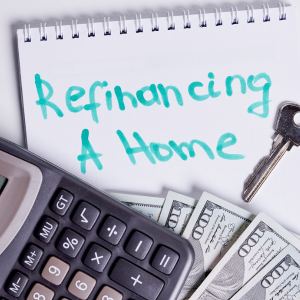
- Understand the Refinance Waiting Period: Lenders often require you to wait before selling after refinancing. This waiting period is usually between six months to a year. Knowing this helps you plan better.
- Check for Prepayment Penalties: Some loan agreements charge fees if you pay off early by selling your home. Look at your mortgage terms to see if this affects you.
- Handle Outstanding Loan Amounts: Ensure your sale price covers the remaining mortgage and selling costs. Properly valuing and pricing your house is crucial.
What Strategies Can Help Maximize Profit After Refinancing?
To get the most profit when selling after refinancing, consider these strategies:
- Increase Equity: To boost equity, improve your home, or pay more towards your mortgage. More equity means more profit.
- Include Refinancing Costs: Factor in all costs when setting your sale price so these don’t affect your earnings.
- Market Timing: Sell when market conditions are favorable for a better profit margin.
Is Consulting a Real Estate Expert Beneficial for Post-Refinance Sales?
Getting help from a real estate expert can be a smart financial move when selling after refinancing. Here’s how they help:
- Expert Valuation: Real estate professionals can accurately value your home, ensuring you list at the right price.
- Market Insights: They offer insights on local trends, which is helpful in competitive areas like Texas.
- Negotiation Skills: Home buyers are skilled negotiators who work to get you the best sale price.
Exploring Alternatives to Selling After Refinancing Your House
Are There Alternative Financial Strategies to Consider?
Refinancing your Texas home can give you access to new financial options to help you reach your goals. Debt consolidation is a popular method for combining several debts into one payment. Refinancing your mortgage could lower your interest rates and make it easier to manage your finances.

- Refinancing Costs: Check the application, appraisal, and closing fees. If not reviewed carefully, these might reduce the benefits.
- Determine Your Financial Goals: Know what you want to achieve financially. Whether lowering monthly payments or freeing up money for investments, having a clear goal will help guide your strategy.
Considering these alternatives, you can make informed choices without rushing to sell your property.
How Can Renting Out Your Home Be a Viable Option?
Renting out your property once you have refinanced is a wise approach to creating passive income while maintaining ownership. Homeowners interested in this alternative have opportunities in the Texas real estate market.
- Texas Real Estate Market: Look at current market trends to understand rental demand and set fair prices.
- Property Management: Hiring a property management company can help if handling tenants and maintenance seems overwhelming. They manage daily operations for you.
- Potential Tenants: Screen tenants well to minimize risks and ensure a good rental experience.
Renting allows you to benefit from real estate investing without giving up your home’s equity.
What Are the Pros and Cons of Holding on to Your Home Longer?
In the Texas housing market, the decision to retain your property for an extended period after refinancing necessitates considering numerous advantages and disadvantages.
Pros:
- Home Equity: Over time, your home can build equity, offering a valuable asset for future financial needs.
- Appreciation: The Texas housing market often appreciates, which could mean your home’s value will rise over time.
Cons:
- Financial Decision: Keeping your home entails a lot of capital you might use for other investments or economic opportunities.
Before deciding, consider your long-term financial plan and market conditions. Knowing these factors can help you choose the best path with Hilltop Home Buyer.
FAQs:
Can I sell my house in Texas right after refinancing?
You can sell your Texas home after borrowing, yes. But some lenders may want you to wait, usually because of a stay clause. Check your credit contract to see if there are any limits.
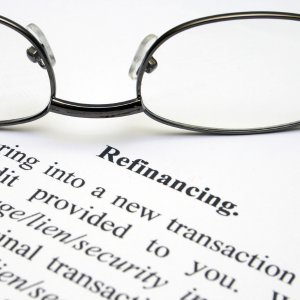
What is the occupancy clause in refinancing, and how does it affect selling my home?
An occupancy clause usually means you need to live in your home for a set time, like six months to a year, after refinancing. This ensures you didn’t refinance just to sell the house quickly.
How does refinancing impact Texas home sales regulations?
Refinancing doesn’t change the rules for selling homes in Texas, but selling soon after may have financial impacts, like higher closing costs or penalties.
What are the financial implications of selling a house shortly after refinancing?
Selling after refinancing may result in prepayment fines or lost refinance benefits. Consider these costs before selling.
Are there legal considerations for selling a house post-refinance in Texas?
Texas laws generally allow selling after refinancing. Still, checking your loan terms for specific quick sales conditions is essential.
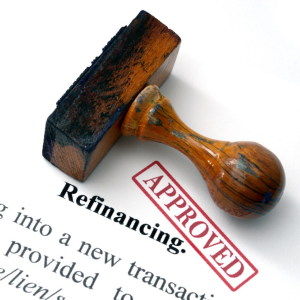
How long should I wait before selling my house after refinancing to maximize benefits?
To get the most benefits, wait until prepayment penalties end and you’ve saved enough from lower payments. This usually takes a few years.
Will my decision to sell affect my credit after refinancing my home?
Selling generally won’t hurt your credit score. But, missing any payments during the selling process could impact your credit.
What role do Texas-specific refinance rules play in deciding when to sell?
Texas rules focus on protecting borrowers. When planning a sale, it’s essential to understand the timing and financial effects. Talking to a local real estate expert is a good idea.
Key Insights
- Selling a house in Texas after refinancing requires understanding specific refinancing costs and regulations.
- Check the timing for selling a home immediately after refinancing to comply with Texas laws.
- Consider Texas refinancing house resale rules, including guidelines and restrictions on post-refinance home sales.
- The waiting period for selling a house post-refinance can impact your financial goals and decisions.
- Learn how refinancing affects property resale timelines and mortgage refinancing selling rules in Texas.
- Explore how refinance options influence monthly payments and overall financial decisions in Texas real estate.
- Occupancy clauses and legalities in Texas are essential when deciding on refinancing and selling your home.
- Factors like loan-to-value (LTV) ratios and consolidation impacts are key when refinancing your home in Texas.
- Compare refinancing benefits with potential resale limitations to make informed financial decisions in Texas housing.
- Consult Texas property experts to understand refinance-to-sale legal restrictions and boost home selling opportunities.
We operate all over Texas, including Fort Worth, Austin, San Antonio, El Paso, Houston, and Arlington. As the same state laws apply, the process is the same no matter where in Texas you and your probate home are located.
If you need further assistance, please contact us at (833) 962-2274. visit our website to learn more about our company.


